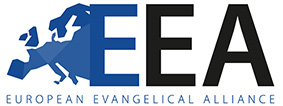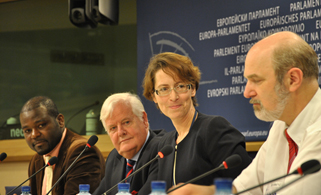I have the impression that we (the EEA staff) were prophetic last year when we set the communication themes for 2022. For the first six months we chose “East meets West – West meets East”. Who would have thought that this would happen on so many levels and to such an extent as it is happening now?
East and West views and opinions meet but can also collide
For many years, we, as the EEA have found it challenging to come to a balanced opinion and subsequently come to a common statement when we explicitly include East and West. To arrive at a solution, we have what we call an authorisation team, which is made up of people from different parts of Europe. Over the years we have had a few issues where we have decided that the EEA would not speak up because inevitably we would not do justice to either side. This has sometimes caused disappointment among some stakeholders, but we felt that in the interest of the common good we should live with the plurality of views and live with unity in diversity.
We initiated and welcomed the discussions that emanated from these controversial topics. We see ourselves as a learning (from each other) community and this bears fruit over time.
East and West meet physically
Who would have thought that hundreds of thousands of Ukrainians would flee to their neighbouring countries and further West some weeks ago? Now literally and physically East and West meet. The question is if they really meet or if they just tolerate each other.
A trivial example: Holidays in another country are a mere tickle on the palate. Our senses are enriched by foreign smells and flavours And I may even bring home spices or food to help the experience linger for a while. But it is not a physical encounter with people and I in reality nothing really changes g for me in the long run.
The relational proximity is different when neighbours with a migration background cook their traditional food. Then the foreign(er) sometimes comes disturbingly close, e.g. through smells. But it is not a given that a physical encounter will take place over a meal. 95% of migrants who live in Switzerland have never been invited to a visit by locals or have never been visited by them. That is probably not very different in other countries. Sadly.
How will we work this out with Ukrainians? Will we let war-displaced people get close to us? Will we allow ourselves to put our intercultural skills into practice? Or will we greet them in a friendly manner but otherwise go about our business as usual?
Meeting through questions instead of assumptions
Ukrainians are Europeans, but the cultural differences between eastern Europeans and western Europeans should not be underestimated. The expectation that they should know how things work here will inevitably lead to disappointment and frustration on both sides. That’s why it’s important to lead attentive conversation. Asking “how would you do this where you’re from?” or “what do you understand by …” are very helpful questions to understand different cultural approaches to life. It’s also important to remember that “different is not bad, it’s just simply different”. That is already a step in the right direction.
Meeting with endurance
Right now it is easy to show good-will because there are overwhelming needs. But the acid test comes when and if the situation drags on. Then patience and perseverance are needed and we will need to practice encouraging support. By the way: You can find answers to many of your questions here: https://www.europeanea.org/ukraine-crisis-response/.
Let us stay in good conversation with each other. Let us encourage each other to press on and pray with and for each other, together with migrants, whenever possible.
Thomas Bucher
![]()
PS Due to current events, this EEA News focuses on what is happening in Ukraine. The war is causing a lot of grief and pain which is expressed in lamenting. Lamenting is a frequently term used in the Bible and is an important concept on our path to understanding and working through our pain, grief and trauma.







